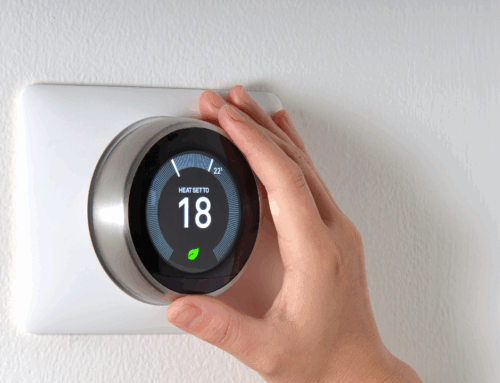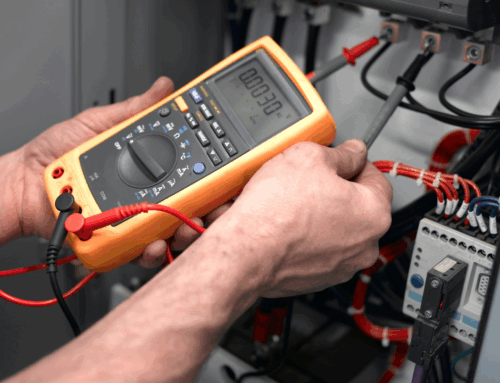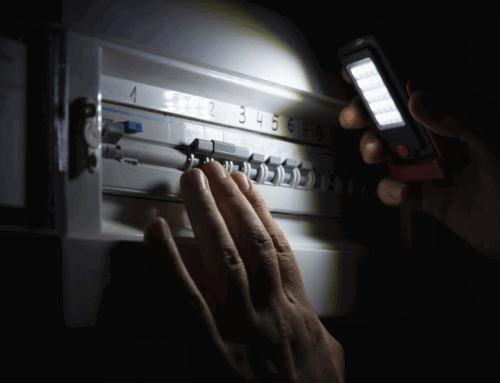Electrical failures during peak business hours can be highly disruptive, leading to financial losses, reduced productivity, and frustrated customers. Whether you operate a retail store, restaurant, or office, ensuring a stable electrical supply is essential for smooth operations. Understanding the causes of electrical failures and taking proactive measures can help businesses avoid costly downtime.
Common Causes of Electrical Failures
Several factors can contribute to electrical failures, especially during peak hours when demand is high. Some of the most common causes include:
- Overloaded Circuits – Excessive power usage from multiple devices running simultaneously can overwhelm electrical systems, leading to tripped breakers or power outages.
- Faulty Wiring – Ageing or poorly installed wiring can increase the risk of short circuits, overheating, and electrical fires.
- Voltage Fluctuations – Power surges or drops in voltage can damage sensitive equipment and cause sudden shutdowns.
- Lack of Maintenance – Neglecting routine electrical inspections can result in unnoticed issues that escalate into major failures.
By identifying these risks early, businesses can implement strategies to prevent disruptions.
Strategies to Prevent Electrical Failures
1. Conduct Regular Electrical Inspections
Routine electrical inspections help identify potential issues before they lead to major failures. A qualified electrician can assess the condition of wiring, circuit breakers, and power distribution systems to ensure they can handle peak demand. Businesses should schedule periodic inspections to maintain electrical safety and reliability.
2. Upgrade Outdated Electrical Systems
Older buildings may have outdated electrical panels and wiring that are not equipped to handle modern energy demands. Upgrading to a more robust system with higher capacity can help prevent overloading and reduce the risk of failures. Installing surge protectors and voltage regulators can further safeguard equipment from fluctuations.
3. Distribute Electrical Load Evenly
To prevent circuit overload, businesses should assess their electrical load distribution. High-powered equipment, such as refrigeration units, heating systems, and commercial kitchen appliances, should be connected to dedicated circuits to avoid straining the overall system. Using smart power management solutions can help regulate energy consumption efficiently.
4. Install an Uninterruptible Power Supply (UPS)
A UPS provides backup power in case of an outage, allowing businesses to continue operations without disruption. This is especially beneficial for industries reliant on computers, point-of-sale systems, and security equipment. A well-maintained UPS ensures essential systems remain operational until power is restored.
5. Implement a Preventative Maintenance Plan
Electrical systems require ongoing maintenance to function efficiently. Preventative maintenance, such as cleaning electrical panels, tightening connections, and testing backup power sources, can prevent unexpected failures. Keeping a log of maintenance activities ensures that inspections and repairs are carried out consistently.
6. Train Staff on Electrical Safety
Employees should be aware of basic electrical safety practices to prevent accidents and failures. Training staff on recognising warning signs, such as flickering lights, burning smells, or frequent breaker trips, can help identify potential problems before they escalate. Encouraging responsible power usage and avoiding unnecessary strain on electrical systems can also enhance reliability.
7. Have an Emergency Plan in Place
Despite the best preventative measures, power failures can still occur. Businesses should have a contingency plan that includes emergency lighting, backup power options, and clear procedures for staff to follow during an outage. Having a professional electrician on call ensures that issues can be resolved quickly with minimal disruption.
Electrical failures during peak business hours can be costly and disruptive, but proactive planning can help mitigate risks. By conducting regular inspections, upgrading outdated systems, distributing electrical loads effectively, and investing in backup power solutions, businesses can maintain a reliable electrical supply. Preventative maintenance and staff training further contribute to reducing the likelihood of unexpected outages.
Taking these steps not only prevents operational disruptions but also improves overall efficiency and safety. For businesses unsure about their electrical infrastructure, consulting an experienced electrician can provide tailored solutions to keep operations running smoothly. Contact us for more information.







Leave A Comment